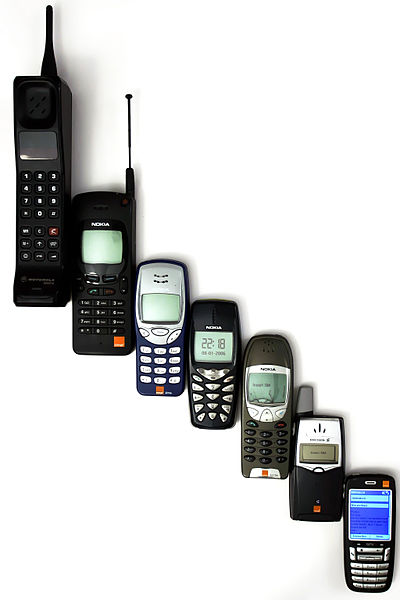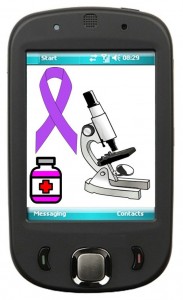The tech company is seeking partnerships and is hiring talent as it prepares to make its way back into the market.
Nokia has announced that it is now testing products, hiring experts in software, and is looking to make new sales partnerships as it builds its strategy to return to the consumer and mobile technology industry.
After having previously stepped out of the handset and smartphone business, it is now headed back in.
Nokia was once a leader in mobile technology and was the largest cell phone maker on the planet. That said, when smartphones took over basic cellular phones and feature phones, the Finnish firm made decisions that allowed Apple and Samsung to leap into the top spots. Eventually, Microsoft purchased Nokia’s handset business. Since that time in 2013, Nokia has placed all of its energies on creating equipment for telecom networks.
While Nokia can’t fully return to the mobile technology industry until the end of 2016, it plans to be ready.
 The company has a non-competition deal with Microsoft that is blocking Nokia from being able to make it back into the handset business at the moment, but when that expires in 2016, Rajeev Suri, the CEO of the company, plans to be ready. The preparations are now heavily underway with the business in order to ensure that once it is free to jump back into the smartphone and consumer handset business, it will be ready to leap with both feet.
The company has a non-competition deal with Microsoft that is blocking Nokia from being able to make it back into the handset business at the moment, but when that expires in 2016, Rajeev Suri, the CEO of the company, plans to be ready. The preparations are now heavily underway with the business in order to ensure that once it is free to jump back into the smartphone and consumer handset business, it will be ready to leap with both feet.
Nokia has already taken a tiny step back into the consumer marketplace after having launched a tablet based on the Android operating system. This device hit the market shelves in China in January, and is called the N1. Much more recently, it unveiled a type of “virtual-reality camera” which it has referred to as the “rebirth of Nokia”.
Other tech that the company has set out to the market includes an Android app entitled the Z Launcher, which is designed to provide smartphones with more effective content organization.
That said, a major focus of the business is now to prepare for reentry into mobile technology in a big way. It is hoping to create handsets in the future that will provide stiff competition in that market.
This scientific research has also connected the devices to skin irritation, headache, and fatigue.
According to the findings of a new study that was published in the Electromagnetic Biology & Medicine journal, the radio frequency radiation that is emitted by wireless and mobile technology is linked to certain kinds of cancers and other health risks.
This study adds a considerable piece of evidence to claims that have long been made about cell phone risks.
Until now, there have been a few studies that have suggested that mobile technology is not linked to cancer, and there have been a few that have indeed linked the two. This has meant that stating that cell phone use can cause cancer was considered to be speculation, until now. This latest research has contributed a significant component to the argument that there are health risks associated with the radiation from mobile tech.
The scientists in the study claimed that mobile technology radiation can cause metabolic imbalances.
 These imbalances to the metabolism that result from proximity and/or use of mobile devices and other wireless gadgets, are what is linked to the development of cancer as well as neurodegenerative diseases, skin rashes, headaches, and other issues.
These imbalances to the metabolism that result from proximity and/or use of mobile devices and other wireless gadgets, are what is linked to the development of cancer as well as neurodegenerative diseases, skin rashes, headaches, and other issues.
The researchers stated that the radiofrequency radiation (RFR) exposure leads to oxidative stress that can cause more minor irritations such as skin problems, fatigue, headache, and others, or more severe medical problems such as cancers. This was determined to be a risk when the mobile device or devices are used for long periods of time.
The research was conducted by a team at the National University for Food Technologies of Ukraine. Study co-author and researcher, Igor Yakymenko, examined living cells and the impact of low-intensity RFR on cellular metabolism. He explained that “These data are a clear sign of the real risks this kind of radiation poses for human health,” adding that “ROS are often produced in cells due to aggressive environments, and can also be provoked by ordinary wireless radiation.”
The study suggested that mobile technology owners take a more precautionary approach to their device use.
 The company has a non-competition deal with Microsoft that is blocking Nokia from being able to make it back into the handset business at the moment, but when that expires in 2016, Rajeev Suri, the CEO of the company, plans to be ready. The preparations are now heavily underway with the business in order to ensure that once it is free to jump back into the smartphone and consumer handset business, it will be ready to leap with both feet.
The company has a non-competition deal with Microsoft that is blocking Nokia from being able to make it back into the handset business at the moment, but when that expires in 2016, Rajeev Suri, the CEO of the company, plans to be ready. The preparations are now heavily underway with the business in order to ensure that once it is free to jump back into the smartphone and consumer handset business, it will be ready to leap with both feet.
 These imbalances to the metabolism that result from proximity and/or use of mobile devices and other wireless gadgets, are what is linked to the development of cancer as well as neurodegenerative diseases, skin rashes, headaches, and other issues.
These imbalances to the metabolism that result from proximity and/or use of mobile devices and other wireless gadgets, are what is linked to the development of cancer as well as neurodegenerative diseases, skin rashes, headaches, and other issues.